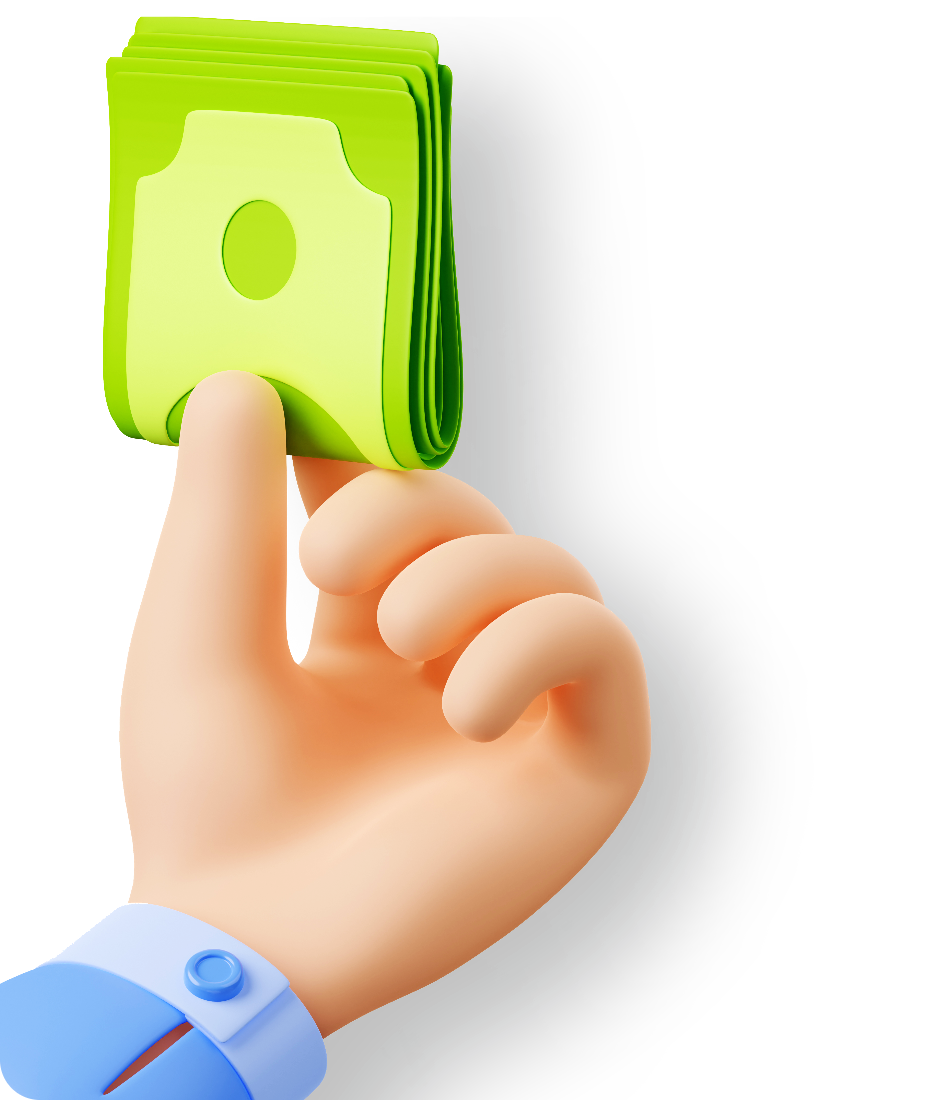Link reclamation is the process of identifying and recovering lost links that previously pointed to your website. This process allows you to restore high-quality backlinks, which can significantly improve your website’s SEO health. Additionally, link reclamation helps rebuild your website’s credibility in the digital landscape.
Earning quality backlinks requires considerable effort and patience, so losing these hard-earned links can be particularly frustrating. The loss of backlinks can have a significant impact on your SEO performance, potentially leading to decreased search traffic and diminished credibility for your website.
To avoid these negative consequences, it’s crucial to address link loss proactively. Fortunately, link reclamation provides a solution by helping you restore lost links and re-establish your website’s authority.
4 Reasons Why Links Might Be Lost

1. Link Removed
A link can be lost if the content author manually removes it. There are various reasons for this, such as the link no longer being relevant or the content needing updated information.
2. Linking Page Deleted
If the entire page that contains a link to your site is deleted, the link will be lost as well. Therefore, it’s essential to track the websites where you earn backlinks to monitor their current status.
3. Linking Page Redirected
If the page linking to your site is redirected, it can cause the link to become broken or lost. In this case, you may need to work with the webmaster to find the current location of the links.
4. Linking Page Noindexed
If a page is marked as “noindex,” it will be excluded from search engine indexing. This can reduce its SEO value and nullify the impact of the link.
Link Reclamation vs Unlinked Mentions
As mentioned earlier, link reclamation involves restoring lost links, and its process differs significantly from claiming unlinked mentions. Claiming unlinked mentions occurs when webmasters or blog authors mention your brand but do not include a link. By notifying them, you can encourage them to add a link to your webpage, thus earning high-quality backlinks.
To clarify, lost links are those that were previously connected to your website but have since been removed, while unlinked mentions are potential links that have not yet been interlinked to your site.
For this reason, focusing on link reclamation can be beneficial since you are working to recover links you already had. All you need to do is restore and rebuild your link profile to enhance your SEO performance.
How to Find and Reclaim Lost Backlinks ( 5 Ways )
1. Finding Lost Links with SEO Tools
One of the most effective ways to find lost links is to use SEO tools, such as SEMrush, Ahref, and Moz. These SEO tools provide detailed reports on your backlink profile, you can check the link quality and source, and it can help you track your link performance.
For instance, you can read the article by Ahref with a detailed step to help you find lost links:
- Go to the lost backlinks report
- Set the time frame to narrow down your search
- Proceed with reviewing the links, including the source, anchor text, and the page where they link.
However, not all lost links are worth reclaiming because you have to filter the best links. You can use Domain Authority, traffic, and relevant metrics to know which links can optimize your overall backlink strategy.
2. Picking the Best Opportunities
Picking the best opportunities for link reclamation should start with understanding why these links were lost. This knowledge will allow you to adopt an appropriate approach to recovering them.
- Link Removed: If the content author has removed the link, assess whether it’s worth reclaiming based on content updates, replacements, or external link policies.
- Not Found (404 Errors): Determine if the page deletion was accidental or intentional. If it was accidental, you can email the webmaster to inform them and potentially reclaim your link. If intentional, consider looking for other opportunities, as the website may no longer be functioning.
- Broken Redirects: Evaluate whether the redirect issue was a mistake. If it was, you can also contact the webmaster to address the issue.
- Noindex and Canonical Changes: Understand the implications of these changes and whether they are worth pursuing. If the noindex or canonical changes were made unintentionally, you might reach out to the web owner. If not, seek other opportunities.
3. Filter for High-Value Links
When reclaiming lost links, it’s essential to prioritize those from high-quality domains, just as you would during backlink acquisition. Focusing on high-value links ensures that your efforts will have a meaningful impact on your overall SEO performance.
- Avoid Wasting Efforts – Don’t expend time and resources on lost links that are unlikely to benefit your website. Instead, concentrate on links that can enhance your site’s authority and visibility.
- Utilize SEO Tools – To effectively filter for high-value links, leverage SEO tools designed to identify lost links worth reclaiming. Tools like SEMrush, Ahrefs, and Moz can provide valuable insights into your backlink profile and help you locate links that have the potential to improve your rankings.
- Assess Domain Authority – As mentioned earlier, evaluating the website’s Domain Authority (DA) is crucial. A higher DA indicates a more credible and authoritative site, which can contribute to your own site’s SEO strength. Additionally, consider the site’s traffic potential; links from high-traffic sites can drive valuable referral traffic to your website.
- Make Informed Decisions – By carefully filtering for high-value links, you can maximize your link reclamation efforts, ensuring that each reclaimed link adds substantial value to your SEO strategy.
4. Personalized Outreach
Link building is not just about collecting links; it’s also about building professional relationships in your industry. Personalized outreach can make a significant difference when it comes to link reclamation.
- Crafting Your Message – Create a personalized email that is respectful and professional. In your email, clearly explain the issue you want to address and suggest a solution for reclaiming the lost links. This will help you work effectively with the webmaster.
5. Utilize Broken Link Building
When doing your link reclamation, it’s also an excellent strategy to utilize broken link building to turn errors into more opportunities! This is an opportunity when you can tell the webmaster to replace your lost links with more relevant and high-quality links. In return, the new links will improve your SEO performance.
Benefits of Link Reclamation
Isn’t it better to acquire new backlinks than to focus on the old ones? This question often arises when considering your backlink strategy. While seeking new links is essential, there are significant benefits to link reclamation that shouldn’t be overlooked.
- Restoring Lost SEO Value: Losing quality links is inevitable due to various factors. By implementing a link reclamation strategy, you can recover lost SEO value and, in doing so, improve your overall SEO performance.
- Efficient Use of Resources: Since the links have already been acquired, reclaiming them is generally less time-consuming than earning new backlinks. This approach can be more cost-effective, especially if you need to be strategic with your monthly budget.
- Preserving Referral Traffic: In addition to organic traffic, referral traffic can significantly increase the number of visitors to your website. These visitors may turn into potential customers or clients, contributing to your brand’s growth.
- Building Relationships: Link building is also about fostering and maintaining relationships with other industry experts. By conducting email outreach for link reclamation, you strengthen your professional network.
- Maintaining a Healthy Backlink Profile: A healthy backlink profile consists of diverse link acquisitions and well-functioning links. Link reclamation helps prevent your backlink profile from deteriorating over time due to lost links, no-index pages, or broken redirects.
When Link Reclamation Isn’t Worth It!
While link reclamation is an effective strategy for restoring lost links, there are instances when these links may not be worth the effort. Here’s how you can identify non-worthwhile cases:
- Noindex Tags: Pages marked with noindex tags are not intended to appear in search results and may not be worth pursuing. Instead, focus on finding new opportunities to enhance your backlink acquisition.
- Canonical Changes: Canonical changes are usually deliberate and may not warrant intervention. In these cases, consider exploring other link opportunities to conserve your efforts.
- Redirects: Not all redirects are worth chasing, especially if they were intentionally set up to direct traffic elsewhere. Redirects may also indicate that the lost links are no longer relevant to your website, making it better to seek out more relevant sources for your backlinks.
- Crawl Errors: Links lost due to crawl errors may reappear on their own as the issues are resolved. Rather than spending time fixing these crawl issues, look for websites with better technical SEO to improve crawlability.
- Dropped Links: If a link was dropped because the content or site no longer exists, it’s typically not worth pursuing. If it was deleted intentionally, the website owner may no longer wish to reactivate it.
Innovative Techniques for Effective Link Reclamation
After identifying the links you want to reclaim, you can follow these three steps to make your reclamation process more efficient:
- Automation and Tools
To streamline the link reclamation process, consider using tools like Ahrefs, SEMrush, or Google Search Console to regularly track lost links. Spreadsheets can also be helpful for organizing your outreach efforts and tracking progress. - Prioritization
Focus your efforts on reclaiming links with the highest SEO value. This typically means prioritizing links from authoritative, relevant sites, as these will significantly improve your SEO performance. - Broken Link Building
An advanced reclamation tactic is broken link building, which involves identifying broken links on other sites and offering your content as a replacement. This strategy not only helps reclaim lost links but also generates new opportunities.
Reclaim Lost Links to Improve SEO
Link building requires patience, as acquiring links is a systematic process. Losing a valuable link can be frustrating, but there’s a solution: implement link reclamation as part of your SEO strategy! Finally, remember to follow the tips in this article and observe how the recovered links can enhance your SEO.
In case you missed!






